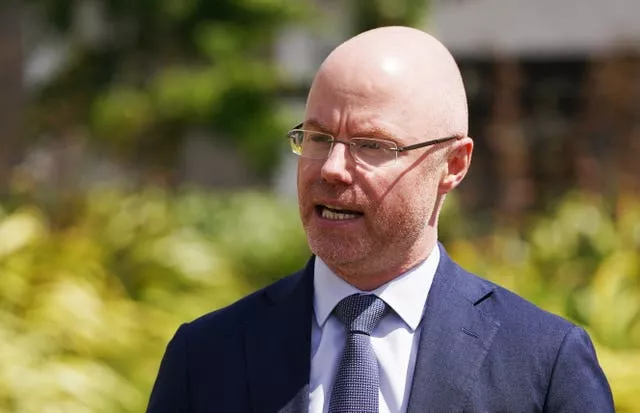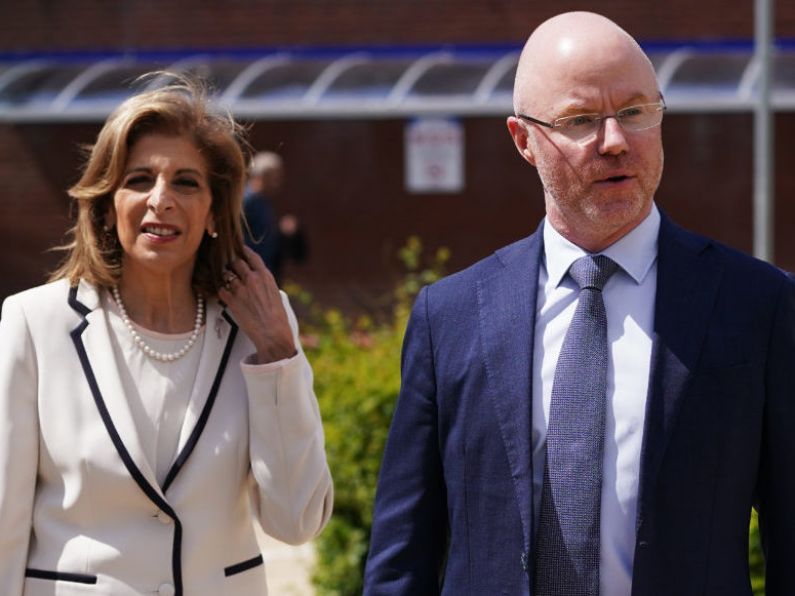By Cate McCurry, PA
Around 40 per cent of patients treated with a revolutionary cancer therapy are seeing successful results, according to the Minister for Health Stephen Donnelly.
CAR – T (Chimeric Antigen Receptor T-cell) therapy works by genetically engineering an individual’s T-cells to recognise and destroy cancer cells.
Mr Donnelly and EU Health Commissioner Stella Kyriakides visited patients at St James’s Hospital in Dublin, one of Ireland’s eight designated cancer centres for adults, on Friday.
The visit was used to update the commissioner on progress under Ireland’s National Cancer Strategy.

Until recently, Irish patients had to travel abroad to receive the specialised treatment.
“What we saw here this morning is nothing short of astonishing,” Mr Donnelly said.
“Typically at the moment the treatment is offered to patients for whom other treatments have not worked, and who otherwise would be looking, in a lot of cases, at a terminal prognosis. At the moment, what we’re seeing is about a 40 per cent success rate.
“Up until very recently, Irish patients had to travel abroad to get this very specialised treatment. Very, very difficult, including a long period of time that they’d have to stay in hospital after the treatment.
“Back in November, here in St James’s, the adolescent and adult service opened up. In Crumlin very recently, the paediatric service opened up as well.
“What’s very exciting is the commissioner and I had the time to talk with some of the scientists, talk with some of the oncologists, and not only is this quite an extraordinary treatment now, but it looks to be very much the future as the treatments become more widely available, as they move for example, from treating cancers of the blood, to tumours and solid cancers.
“The view is that the treatment will begin to be applied earlier on during the treatment pathway.
“Essentially what they do is they they take out your white blood cells, they do some very elaborate scientific things to them, they genetically recode your own cells.
“They put them back inside you and your own immune system rebuilds itself, attacks and destroys the cancer.
“It’s extraordinary and the conversations we were having with the scientists, with the medics inside, I think gives us an awful lot of hope in terms of cancer treatments, survivorship rates, into the future.”
Ms Kyriakides said that Europe’s beating cancer plan is “one of the most important pillars” of the European health union.
“It is the first time that the European Commission has a plan funded by over four billion euro to change the face and the realities of cancer,” she added.
“We had the opportunity today to visit the centre to see state-of-the-art care and treatment and the importance of innovation.
“We also spoke with patients who have benefited from this new treatment and for myself, hearing him say that until November he felt that there was very little chance of any remission, and to have hope of that now and be in remission speaks volumes.
“The fact that patients now have access to these treatments in Ireland, they do not have to travel, they do not have to be separated from their families, and to be given this opportunity, I think is really so very important.”






